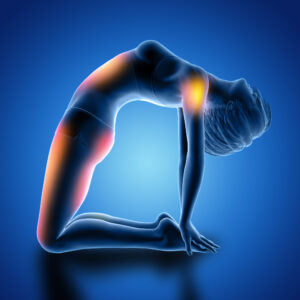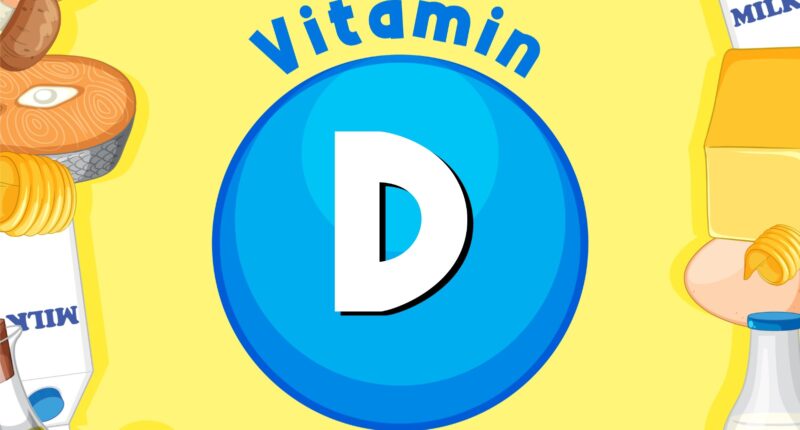Vitamin D is essential for maintaining overall health and is often called the “sunshine vitamin”. It is sensitive to bone health, immune function, and mood regulation. However, vitamin D deficiency is a common issue that can lead to various health problems. This blog will explore the causes, symptoms, and solutions for vitamin D deficiency to help you understand its importance and how to address it.
What is Vitamin D?
Vitamin D is an essential fat-soluble vitamin that plays a crucial role in promoting the absorption of calcium and phosphorus in the body. These minerals are necessary for maintaining strong and healthy bones and supporting dental health. Vitamin D also supports the immune system, brain, and nervous system. Unlike other vitamins, the body can synthesize vitamin D when the skin is exposed to sunlight.
Causes of Vitamin D Deficiency
Several factors can contribute to vitamin D deficiency, including:
1. Limited Sun Exposure
The primary source of vitamin D is sunlight. When exposed to UVB rays, your skin triggers vitamin D production, which is essential for maintaining overall health. However, many people spend most of their time indoors, use sunscreen, or live in areas with limited sunlight, especially during winter. These factors can significantly reduce the body’s ability to produce vitamin D.
2. Skin Color
Melanin, the pigment that determines skin color, may diminish the skin’s capacity to produce vitamin D when exposed to sunlight. People with darker skin have higher levels of melanin, requiring more sun exposure to produce adequate amounts of vitamin D than those with lighter skin.
3. Age
As individuals grow older, the natural ability of their skin to produce vitamin D decreases. This reduced efficiency in synthesizing vitamin D can contribute to potential deficiencies in older adults. Additionally, older adults may spend more time indoors and have diets that do not provide sufficient vitamin D.
4. Diet
Very few foods contain natural Vitamin D. Fatty fish, liver, egg yolks, and fortified foods like milk and cereal are good sources. However, if a person’s diet lacks these foods, they may not get enough vitamin D.
5. Health Conditions
Certain medical conditions, such as Crohn’s disease, celiac disease, and kidney or liver diseases, can affect the body’s ability to absorb or convert vitamin D into active form.
Symptoms of Vitamin D Deficiency
Insufficient Vitamin D can cause a variety of health problems. Common symptoms include:
1. Bone Pain and Muscle Weakness
Vitamin D is essential for calcium absorption. Without adequate vitamin D, osteomalacia can occur, resulting in thin, brittle, or misshapen bones. This can lead to discomfort in the bones and weakness in the muscles.

2. Frequent Illnesses
Vitamin D is essential for supporting the proper functioning of the immune system. The immune system may weaken when the body lacks adequate vitamin D, making individuals more vulnerable to infections and illnesses.
3. Fatigue and Tiredness
Low levels of vitamin D have been linked to fatigue and chronic tiredness. Increasing vitamin D intake can help improve energy levels.
4. Depression
Research has shown that a deficiency in vitamin D is linked to a higher risk of experiencing depression. This is because sufficient vitamin D levels regulate mood and support overall mental well-being.
5. Slow Wound Healing
Vitamin D helps regulate cell growth and immune function. Insufficient levels can result in sluggish wound healing and heightened inflammation.
Solutions for Vitamin D Deficiency
Boosting your vitamin D levels means soaking up more sunshine, eating vitamin D-rich foods, and considering supplements.
1. Sun Exposure
Spend time outdoors in the sunlight, especially during midday when UVB rays are strongest. Soak up the sun for 10-30 minutes a few times a week. Tailor your sun time to your skin type and where you’re located.
2. Dietary Sources
Include vitamin D-rich foods in your diet. Fatty fish like salmon, mackerel, sardines, egg yolks, beef liver, and fortified foods like milk, orange juice, and cereals are excellent sources.
3. Supplements
Vitamin D supplements can help ensure you get enough of this essential nutrient, mainly if you have limited sun exposure or dietary intake. Vitamin D3 (cholecalciferol) is considered the most effective form when choosing a vitamin D supplement. It is recommended to consult with a healthcare provider to determine the appropriate dosage that best meets your specific needs.
4. Regular Monitoring
If you are at risk of vitamin D deficiency, regularly monitoring your vitamin D levels through blood tests can help ensure you maintain adequate levels. Your healthcare provider is there to offer personalized guidance based on your individual needs.
Conclusion
Vitamin D is vital for maintaining good health, and deficiency can lead to numerous health issues, including bone problems, weakened immunity, and mood disorders. You can protect your health and well-being by understanding the causes, recognizing the symptoms, and taking proactive steps to increase your vitamin D intake. Ensure you get enough sunlight, incorporate vitamin D-rich foods into your diet, and consider supplements if necessary to maintain optimal health.
Taking charge of your vitamin D levels can significantly impact your overall health. Stay informed and proactive to prevent vitamin D deficiency and its associated health risks.









